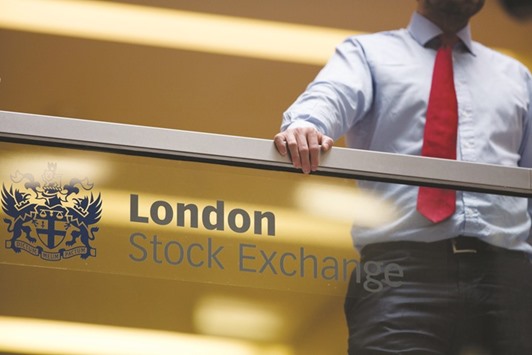Global stock markets rose yesterday offering a cautiously optimistic end to the week after new data showed strong US jobs figures but a fall in wages and fuelled speculation of further Federal Reserve rate hikes.
In European trade, London firmed 1.0% in value, with Paris and Frankfurt close on its heels. London’s FTSE 100 was 1.0% at 6,191.96 points, Frankfurt’s DAX 30 was up 0.7% at 9,824.17 points, Paris’ CAC 40 was 0.9% at 4,456.62 points and EURO STOXX 50 was up 0.8% at 3,037.35 points at close. The region’s bourses had ticked lower Thursday as investors paused following this week’s sharp global rally.
After a miserable start to the year for investors, March has so far provided some cheer thanks to positive US data and Beijing’s decision to ease monetary policy, dealers said.
A pick-up in oil prices — which in January were near 13-year lows below $30 a barrel — has also provided some stability, with energy firms breathing a sigh of relief.
“US data continues to shine, oil continues to firm and risk appetite is coming back into all aspects of the markets,” said analyst Angus Nicholson at traders IG.
After this week’s gains however, dealers were nervously hoping several looming events would not change the mood.
First up was US jobs data which painted an overall rosy picture for February. Shares on Wall Street were trading slightly higher, up 0.5%.
US employers defied a global slowdown and pumped up hiring last month, adding a much better-than-expected 242,000 new jobs, the Labor Department reported yesterday. However, it also said that average wages fell.
It comes after better-than-expected reports on private jobs, the manufacturing sector, construction spending and auto sales.
Coming two weeks before the Federal Reserve holds its next policy meeting, the data also prompted analysts to weigh the odds of further interest rate hikes.
China’s National People’s Congress is to begin meeting today, with delegates due to sign off on a new five-year economic plan.
There are growing hopes that authorities will also unveil measures to shore up the world’s number two economy, which is growing at its slowest pace in a quarter of a century.
Earlier this week the government cut the amount of cash banks must keep in reserve as it looks to get them lending again.
Oil prices, for most of this year a millstone around the neck of traders, retained recent gains on hopes that key producers, including Russia and Opec titan Saudi Arabia, would be able to agree to a deal to freeze or cut output.

An employee leans on a glass wall above the main atrium of the London Stock Exchange Group headquarters. The FTSE 100 closed 1% up at 6,191.96 points yesterday.
